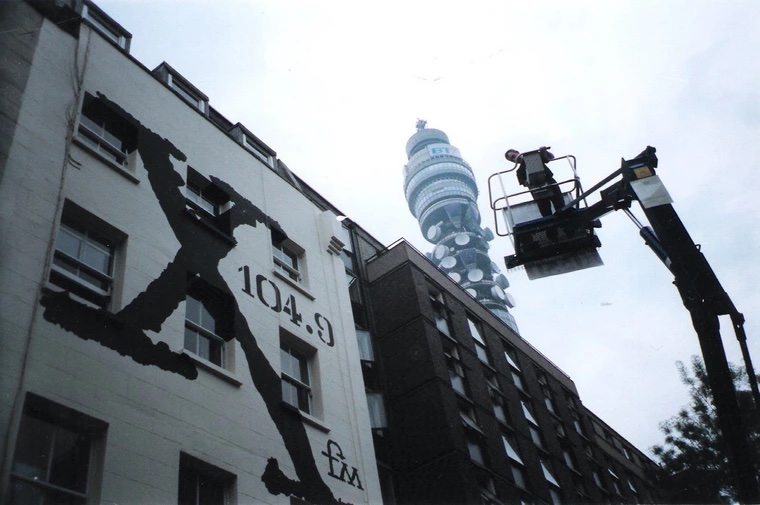-
I’m Tired of Pretending Physical Media Isn’t Still Better Than Streaming Digital
Sabina Graves in Gizmodo: At the start of the year, when I was early in my pregnancy, I was assigned to watch Furiosa at LA’s glorious IMAX Headquarters. In order to prep, I thought I’d just turn on Max and re-watch Mad Max: Fury Road. And to my surprise and quick consternation, what was discovered within a few minutes…
-
Call for Book Proposals: TV Matters
Intellect Books: TV Matters is a new series of short monographs (40,000 to 50,000 words) on television series, analysing their production history, cultural context, main themes, as well as fandom and audience reception. The focus is on shows that both have critical acclaim (as reflected by awards, media reviews), but more importantly, are genuinely ‘popular’.…
-
Reading List
I’ve created a new category on this blog which I’m tentatively calling the Reading List, inspired by Molly White’s Shortform Reading List. Each post will contain a link and maybe a key quote or two, and very occasionally some (brief) commentary, but that’s it. The List’s purpose is to exist as a collection of resources…
-
Slurping podcasts for research and preservation with yt-dlp
My comedy archive includes hundreds of podcasts stretching back to the medium’s infancy, and I continue to actively preserve dozens of shows each week. I also routinely listen to and transcribe podcasts in the course of my research, so I’m constantly saving and organising local copies of audio files. Since podcasting is haphazardly elegantly built…
-
RSS for researchers
RSS rules. It’s one of the last remaining vestiges of the good internet, and its status as an open, extensible, decentralised standard feels increasingly anachronistic, perhaps even radical, on today’s web. Over its lifetime RSS has proven surprisingly flexible and conducive to new uses — podcasting being the most famous example — but the standard…
-
Doctorb

Last month I submitted the amended version of my thesis, meaning that after I sprint across the stage at Marvel Stadium and execute an exquisite flying kick to the Vice-Chancellor’s bonneted head, I’ll be a doctor. I haven’t looked it up but I assume this is the procedure. I hate to make this all about…
-
Performing the Self: Parafictional Persona and the Comedian Comedy
A PhD drawing on the concept of parafictional persona to examine the phenomenon of comedians playing themselves in fictional comedy television.
-
Cringe Comedy and the Suspension of Empathy
Cringe comedy has been an ascendent form of comic media for the past two decades, testing viewers’ ability to endure extreme levels of awkwardness and abjection. One popular mode of cringe comedy — practiced by the likes of Sacha Baron Cohen, Nathan Fielder, and Eric Andre — involves staging interactions between a comedian and real…
-
Comedy Community: An Ecology of Comedy on Community Media in Australia
A project that aims to explore the importance of community media as an incubator and training ground for comedians in Australia.
-
Comedy Archive
For several years I have been maintaining an archive of rare and obscure comedy media, mostly from Australia, with the intention of preserving it for future use by researchers and academics. I am especially interested in preserving the early-career work of comedians who started on community television or radio before becoming more widely recognised in…
-
Fan-led preservation practices: remastering The Ricky Gervais Show

“The Net interprets censorship as damage and routes around it.” John Gilmore I’m part of a small but enduring community of online weirdos centred around The Ricky Gervais Show, a comedy programme hosted by Ricky Gervais, Stephen Merchant, and producer Karl Pilkington on and off between 2001 and 2010. The show is now mostly forgotten,…
-
Self-Reflexive Stardom and the Early Television Sitcom: Parafictional Persona in The George Burns and Gracie Allen Show
Scholars of television in the United States have noted an undercurrent of self-reflexivity in the early sitcom, typically understood as techniques that call attention to the medium’s artifice and the apparatus of television itself. However, one aspect of self-reflexivity in early television sitcom that warrants deeper analysis is the use of parafiction, or the deliberate…
-
Art and (in)accessibility

Love this piece in Overland, by Kieran Stevenson, noting the grotesque irony of Julian Rosefeldt’s Euphoria — a purportedly anti-capitalist screed of a film — playing at Melbourne’s bougie marquee arts festival RISING. The worst part of the show’s marketing isn’t encountered until after you decide to leave—attendees must exit through the gift shop, where…
-
‹SCREEN INQUISITION›
A regular series of curated screenings and discussions that spotlight and intersect with research being undertaken in the School of Media & Communication at RMIT University.
-
Parafiction in the 1950s Sitcom: Meta Humour and Self-Referentiality in The George Burns and Gracie Allen Show
The George Burns and Gracie Allen Show (1950–1958) portrays the domestic life of its titular comedians as a pair of married vaudeville and radio entertainers. Replicating the dynamic of their own successful vaudeville and radio double act, Burns plays the put-upon but patient straight man, leaving most of the comedic heavy lifting to Allen, whose…
-
Friends with Benefits: Neoliberalism and Heteronormativity in the Bromance Film
Critical readings of the bromance film genre – as typified by Judd Apatow’s The 40-Year-Old Virgin (2005) – often focus on how such films ostensibly reconfigure the tropes of the romantic comedy away from privileging heterosexual coupledom and towards platonic male friendship. The romantic comedy has long been identified as an agent of neoliberal ideology…